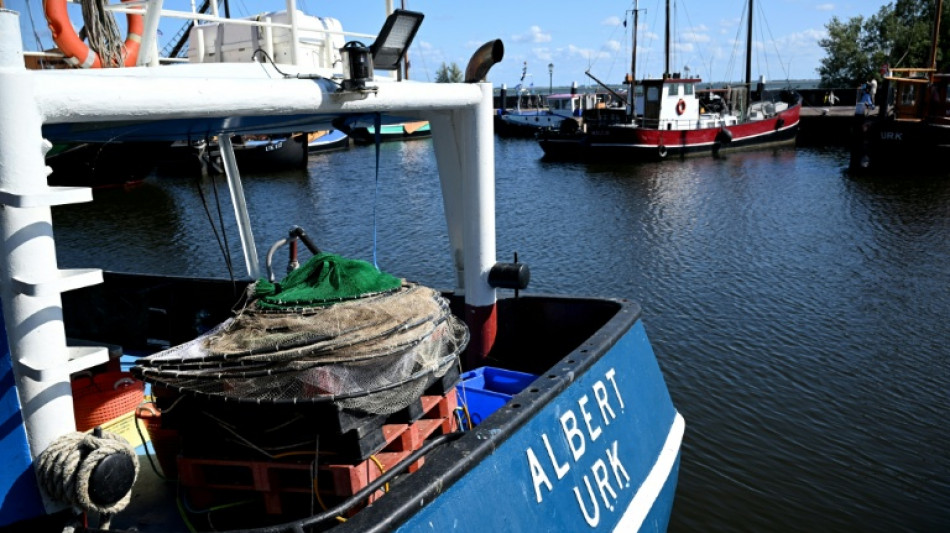
-
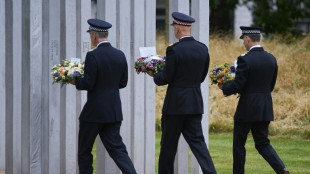 UK marks London 7/7 attacks as king hails 'spirit of unity'
UK marks London 7/7 attacks as king hails 'spirit of unity'
-
Apple appeals 500-mn-euro EU fine

-
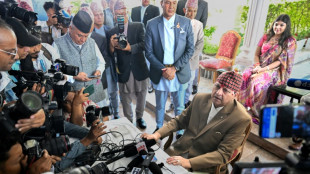 Crowds celebrate Nepal ex-king's birthday in show of support
Crowds celebrate Nepal ex-king's birthday in show of support
-
Bali flights nixed after huge Indonesia volcano eruption

-
 Hamas, Israel resume talks as Netanyahu set to meet Trump
Hamas, Israel resume talks as Netanyahu set to meet Trump
-
Hong Kong fans queue for opening of Cristiano Ronaldo exhibition

-
 Itoje back as Lions take no chances against ACT Brumbies
Itoje back as Lions take no chances against ACT Brumbies
-
Stock markets struggle as Trump's tariff deadline looms

-
 Nearly 450,000 Afghans left Iran since June 1: IOM
Nearly 450,000 Afghans left Iran since June 1: IOM
-
North Korea bars Western influencers from trade fair tour
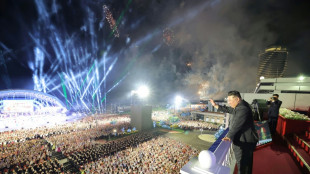
-
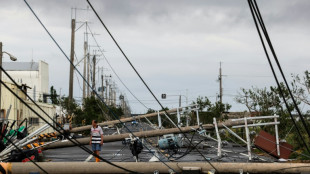 Typhoon Danas kills two, injures hundreds in Taiwan
Typhoon Danas kills two, injures hundreds in Taiwan
-
Dutch coastal village turns to tech to find lost fishermen
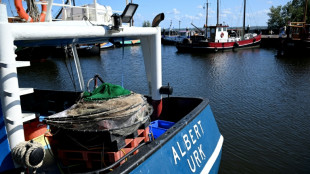
-
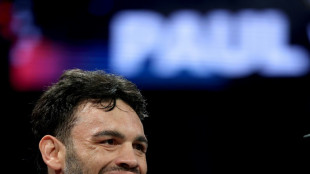 Boxer Chavez's appeal against arrest if deported from US rejected: Mexico prosecutor
Boxer Chavez's appeal against arrest if deported from US rejected: Mexico prosecutor
-
India captain Gill hailed back home after 'brilliant' Test win
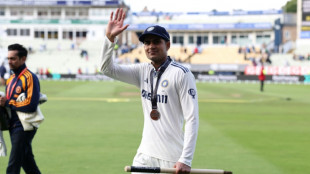
-
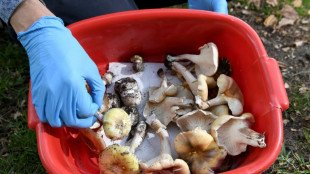 The making of Australia's mushroom murders
The making of Australia's mushroom murders
-
Indonesia volcano spews 18-kilometre ash tower
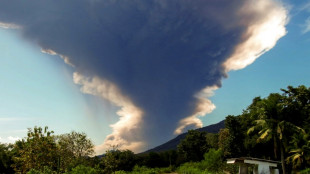
-
 Youthful Chelsea ready for Thiago Silva reunion at Club World Cup
Youthful Chelsea ready for Thiago Silva reunion at Club World Cup
-
Australian inquiry cites racism in Indigenous shooting
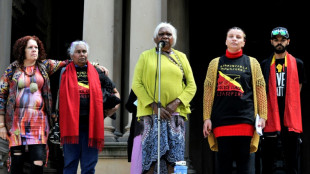
-
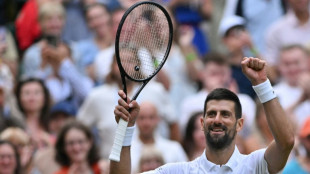 Djokovic wary despite Wimbledon form, dominant Sinner faces Dimitrov
Djokovic wary despite Wimbledon form, dominant Sinner faces Dimitrov
-
Australian woman found guilty of triple murder with toxic mushrooms
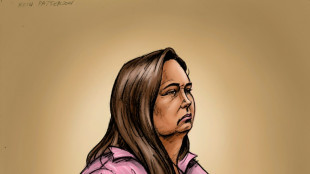
-
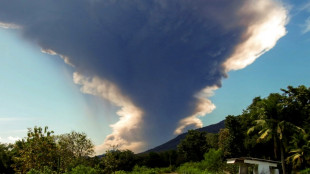 Indonesia volcano spews 18-kilometre ash tower: agency
Indonesia volcano spews 18-kilometre ash tower: agency
-
Trump says to send first tariff letters on Monday

-
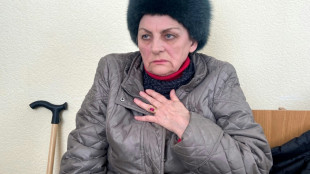 The strange case of Evgeniya Mayboroda, Russia's rebel retiree
The strange case of Evgeniya Mayboroda, Russia's rebel retiree
-
Asian markets drop as Trump's tariff deadline looms

-
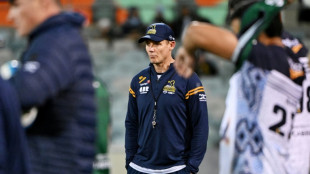 Under-strength Brumbies eye 'big opportunity' against Lions
Under-strength Brumbies eye 'big opportunity' against Lions
-
Macron to rekindle relationship with Francophile King Charles on UK visit
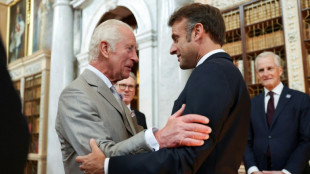
-
 Trump hosts Netanyahu, hopes for Israel-Hamas deal 'this week'
Trump hosts Netanyahu, hopes for Israel-Hamas deal 'this week'
-
Pressed to confess: Japan accused of 'hostage justice'
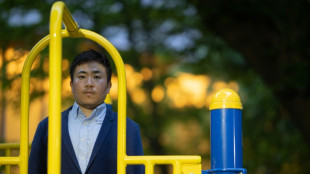
-
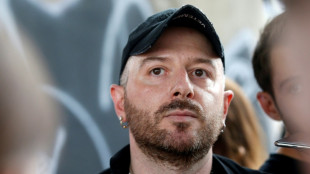 Demna to bow out at Balenciaga in Paris Haute Couture Week
Demna to bow out at Balenciaga in Paris Haute Couture Week
-
Host of internationals in Australia-New Zealand squad to face Lions
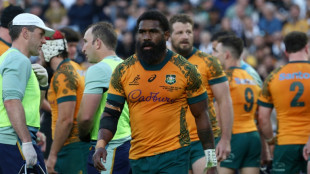
-
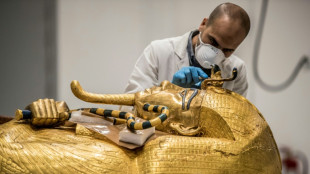 Egyptian conservators give King Tut's treasures new glow
Egyptian conservators give King Tut's treasures new glow
-
Mexico defeat USA 2-1 to retain CONCACAF Gold Cup

-
 Visa's 24/7 war room takes on global cybercriminals
Visa's 24/7 war room takes on global cybercriminals
-
BRICS nations slam Trump tariffs, condemn strikes on Iran

-
 Fineqia's Yield-Bearing Bitcoin ETP Garners $13.9 Mln; Total Co. AUM Reaches $36 Mln
Fineqia's Yield-Bearing Bitcoin ETP Garners $13.9 Mln; Total Co. AUM Reaches $36 Mln
-
BioNxt's Sublingual Cladribine Program for MS Ready for Next Phase

-
 Guardian Metal Resources PLC Announces Pilot North Tungsten Project Acquired via Staking
Guardian Metal Resources PLC Announces Pilot North Tungsten Project Acquired via Staking
-
MLB Nationals fire manager Martinez, GM Rizzo after loss

-
 US tariffs to kick in Aug 1, barring trade deals
US tariffs to kick in Aug 1, barring trade deals
-
Trump slams former ally Musk's political party as 'ridiculous'

-
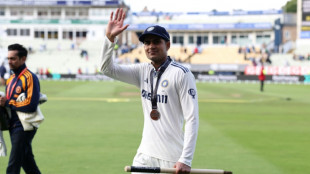 Three things we learned from the second England-India Test
Three things we learned from the second England-India Test
-
Norway reach Euro 2025 quarter-finals as Swiss down eliminated Iceland

-
 Alcaraz vows to avoid Murray after defeat on golf course
Alcaraz vows to avoid Murray after defeat on golf course
-
Alcaraz finds magic touch at Wimbledon as Sabalenka storms into quarter-finals
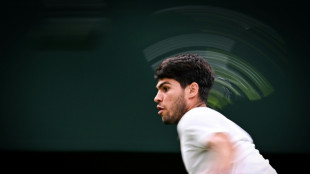
-
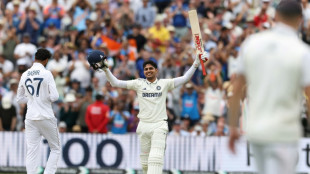 Run-hungry Gill glad to 'lead by example' as India level England series
Run-hungry Gill glad to 'lead by example' as India level England series
-
Rockets confirm arrival of Durant in unprecedented NBA seven-team trade

-
 Alcaraz survives Rublev test to stay on course for Wimbledon hat-trick
Alcaraz survives Rublev test to stay on course for Wimbledon hat-trick
-
New Zealand's Dixon wins seventh IndyCar Mid-Ohio title

-
 US tariffs to kick in Aug 1, barring trade deals: Bessent
US tariffs to kick in Aug 1, barring trade deals: Bessent
-
England consider Archer and Atkinson recall after heavy India defeat
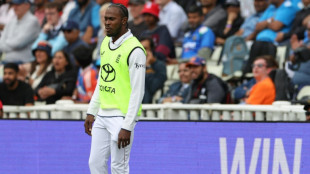

Dutch coastal village turns to tech to find lost fishermen
Jan van den Berg stares out at the sea where his father vanished seven decades ago -- lost in a storm just days before his birth. Now aged 70, he clings to the hope of finding even the smallest fragment of his father's remains.
In Urk, a fishing village in the northern Netherlands, the sea has long been the lifeblood for families -- but has often taken loved ones in return.
Some bodies never surfaced. Others washed ashore on German or Danish coasts and were buried in unnamed graves.
Despite the tragedy, Van den Berg -- the last of six children -- became a fisherman like his brothers, defying their mother's terror that the North Sea would claim her sons too.
"We never found his body," he told AFP in a low voice, mumbling under the brim of his hat.
But after decades of uncertainty, advances in DNA technology and artificial intelligence have given Van den Berg renewed hope.
Researchers are now able to match remains with living relatives more accurately than ever before, offering families long-awaited answers and the chance to finally mourn properly.
"Many families still gaze at the front door, hoping their loved-one will walk through it," said Teun Hakvoort, an Urk resident who serves as spokesperson for a new foundation dedicated to locating and identifying fishermen lost at sea.
"All sunken boats have been mapped. Using modern tech, we look at the weather and currents at the time of the shipwreck to estimate where the fishermen might have washed ashore," the 60-year-old said.
- Found after 47 years -
The foundation, Identiteit Gezocht (Identity Sought), aims to list all unknown graves on the coasts of the North Sea, hoping to identify remains.
The new searches have already borne fruit. A body was recently exhumed on Schiermonnikoog, a small island north of the Netherlands, and returned to the family.
"This man had been missing for 47 years. After all this time, DNA and this new method of work made it possible to discover he came from Urk," said Hakvoort.
Another Hakvoort, Frans Hakvoort, leads the foundation with the support of his two brothers in Urk, a tight-knit Protestant community where certain family names frequently reoccur.
The three men, who have all lost a relative at sea, dedicate their free time to searching for the missing.
"With AI, we search for press articles published after a body washed ashore, possibly in specific circumstances," said Frans Hakvoort, 44.
"We enter all this information into a database to see if we can establish a link. If so, we contact local authorities to see if they can exhume the body."
The Netherlands leads other North Sea countries in identifying the missing, he said, with about 90 percent of unknown bodies exhumed and all DNA profiles stored in a European database.
Given the usual fishing areas and prevailing currents, Urk fishermen are more likely to be buried on German or Danish coasts, he said.
The foundation has called on the public to help identify unknown graves in Germany and Denmark.
- Human remains -
Jan van den Berg runs his fingers over his father's name, engraved on a monument overlooking Urk beach to honour lost fishermen.
The list is long. More than 300 names -- fathers, brothers, and sons, with dates stretching back to the 18th century.
Among the names are about 30 fishermen never found. Kees Korf, missing since 1997 aged 19. Americo Martins, 47, in 2015.
A statue of a woman, her back turned to the sea, represents all these mothers and wives hoping their loved-one returns.
"My father disappeared during a storm on a freezing October night in 1954," says Van den Berg.
"One morning he left the port heading for the North Sea. He was not supposed to be gone long because I was about to be born."
His uncle, who was also aboard, later said his father was on deck when wild waves flipped the boat over.
The tragedy still haunts the family to this day.
"When they pulled the nets on deck with fish, my older brothers always feared there might be something that looked like a human," van den Berg said.
In 1976, his uncle's boat disappeared with two of his cousins, aged 15 and 17, also on board.
He was among those who found the body of Jan Jurie, the eldest, four months later.
The others were never found.
"Not a day goes by without thinking of them, all those men, and that is why I take part in the searches and give my DNA, because it remains an open wound," he said.
"I would like to have at least a small bone of my father to place in my mother's grave." And finally be able to mourn.
D.Kaufman--AMWN